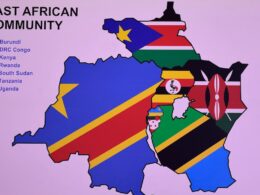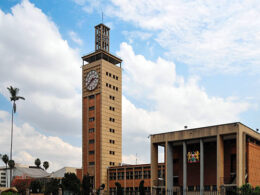NAIROBI,Kenya – The preamble to the Constitution of Kenya 2010 starts with the empowering words, “We the People.” Article 1 of this document enshrines the principle that all sovereign power belongs to the people of Kenya. This is not just a statement, it is a foundational element of governance that asserts the necessity for genuine public participation in all matters of national importance. The recent protests by the youth against the Finance Bill serve as a reminder of this principle and the critical need for the government to listen and respond to its citizens.
Public participation is the foundation of democracy. It allows citizens to voice their concerns, contribute to decision-making processes, and hold their leaders accountable. Effective public participation ensures that policies reflect the will and needs of the people, fostering a more inclusive and equitable society. The Constitution of Kenya 2010 places a strong emphasis on public participation, with Article 10 listing it as a national value and principle of governance.
To be effective, public participation must be more than just a formality. It should involve proactive engagement with citizens, transparent dissemination of information, and genuine incorporation of public input into decision-making processes. This requires government officials to create accessible platforms for dialogue, solicit feedback on proposed legislation, and demonstrate a willingness to adapt policies based on citizen input.
The recent protests against the Finance Bill show how frustrated many Kenyans, especially the youth, feel about the lack of genuine public involvement and government action. The bill, viewed by many as a heavy burden, led to widespread discontent, prompting young people to protest in the streets. These protests highlight the need for the government to listen to its citizens. When people feel ignored, they often protest to make their voices heard. The government must offer effective ways for dialogue and be willing to adjust policies based on public feedback.
Kenya’s legal framework strongly supports public participation. Besides the Constitution, the Public Participation Act of 2018 provides guidelines for involving citizens in decision-making processes. This Act requires that public participation be integrated into all levels of government and that public forums be conducted in an open and transparent manner.
Additionally, international conventions and treaties signed by Kenya stress the significance of public participation. The International Covenant on Civil and Political Rights (ICCPR) and the African Charter on Human and Peoples’ Rights (ACHPR) affirm citizens right to engage in public affairs. These agreements collectively mandate that governance must integrate public participation to ensure policies and decisions reflect the people’s will.
Despite strong legal frameworks, achieving effective public participation in Kenya faces challenges, limited awareness, inadequate access to information, and insufficient mechanisms to incorporate public feedback into policy decisions. Logistical barriers like geographical constraints and digital divides also hinder broad participation, especially among marginalized and rural communities.
The government should prioritize raising awareness of participation rights, enhancing transparency in its processes, ensuring information accessibility across different formats and languages, and expanding digital platforms while effectively bridging the digital divide.
The principle of “We the People” enshrined in the Kenyan Constitution must be realized through active and effective public participation. This requires a paradigm shift in how public engagement is approached by both the government and citizens. The government must be proactive in soliciting and valuing public input, while citizens must be informed and willing to engage in governance processes.
Recent events demonstrate that public participation is not merely a procedural formality but a vital component of a functioning democracy. By ensuring that the voices of all Kenyans are heard and considered in policy-making, then we can move towards a more inclusive, equitable, and responsive governance system. The youth protests against the Finance Bill are a powerful reminder of the need for continual engagement and the essential role that public participation plays in the democratic process.
In conclusion, “We the People” is a call to action for both the government and citizens of Kenya. To uphold the Constitution, public participation must be embraced as a fundamental part of democratic governance. Only through genuine and inclusive participation can Kenya truly reflect the will and aspirations of its people.
The writer Dennis Ondieki is a Monitoring and Evaluation Professional at ICJ Kenya. This article was first published on Citizen Digital.











